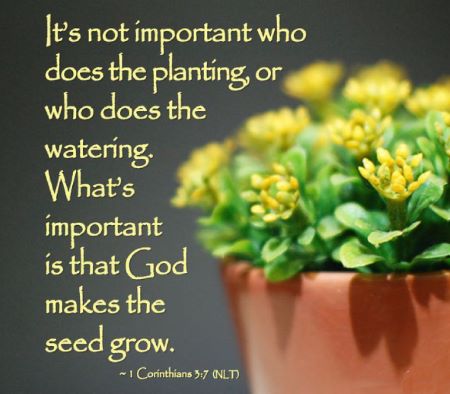
Before We Know It
Easter will soon be upon us. We have about another week to think about the ways we can continue to turn our few good deeds into mountains of them, and turn our many sins into just some small pebbles. This is challenging work. It’s challenging for us to own up to our faults when our imperfect culture expects perfection; especially when we live in a world where corporate executives, politicians, celebrities, sports figures, and the like, almost always minimize, deny, or deflect public attention from those things which others can (and are likely to) use as ammunition against them. Because, when they acknowledge their broken humanity, their careers and fortunes can be lost. Simple foibles sometimes make headlines. And the heinous crimes always do. But sometimes, those who have deep pockets are able to hire lawyers and effectively “buy” their way out of the serious consequences of their behavior.
That’s why it’s always impressed me, when those who have broken the law, acknowledge and admit and “own up to” what they have done, and accept the consequences; and the final scenes of the movie Dead Man Walking provide a gripping example of this kind of maturity and integrity.
But we’ve become such a litigious society, that we may confuse simple facts with “admissions.” We can be led to frame our behaviors with words about guilt and innocence. We may even say, “I admit it, I ate the last piece of cake,” even when we’re not being accused of anything (I mean someone’s got to eat the last piece, or it’ll just go bad!)
Human law is almost always an attempt to mirror God’s law. But sometimes it’s not. And there are many laws “on the books” at which we laugh, because we realize they’re antiquated and no longer apply. I don’t know if it’s since been taken off the books, but statewide in Alabama and as of January 2022, it was illegal for someone to walk down the street with an ice cream cone in their back pocket. What on earth? Really? Yes. Because back when most people got around on horseback, horse thieves would put an ice cream cone in their back pocket to lure horses away, and it kept them from being charged with horse theft. “Gee, your honor, the horse just followed me home!”
And Galatians 3:24-27 clarifies for us that the external law “was our disciplinarian until Christ came, so that we might be justified by faith. But now that faith has come, we are no longer subject to a disciplinarian, for in Christ Jesus you are all children of God through faith. As many of you as were baptized into Christ have clothed yourselves with Christ.”
In baptism, we died to our old selves, and were reborn into the life of Christ; yet we live lives as sinners and saints, and are forgiven and saved by God not because we have earned it, but because it is God’s grace and gift. No amount of human mercy or compassion could ever be this salvific, but even so, we still fall short of God’s desires for us because God’s laws (to which Jeremiah referred) are not yet written fully on our hearts. But even though we are forgiven and saved by God, we are not excused from the consequences of our actions. We still live in a cause-and-effect universe. And Jesus said, “Truly I tell you, just as you did it to one of the least of these who are members of my family, you did it to me.”
In this soon-to-end season of Lent, when our imperfections shine a light on and fade what we thought were our “color-fast virtues;” when we thought that the lion’s share of learning was behind us; when we allow diversity to become divisive; when we fail to treat our neighbors as ourselves; and when we realize that more discernment lies ahead; let’s also remember that God did not send the Son into the world to condemn the world, but in order that the world might be saved through him. And in a few short days, we can shout: Happy Easter! And have the last piece of cake.








